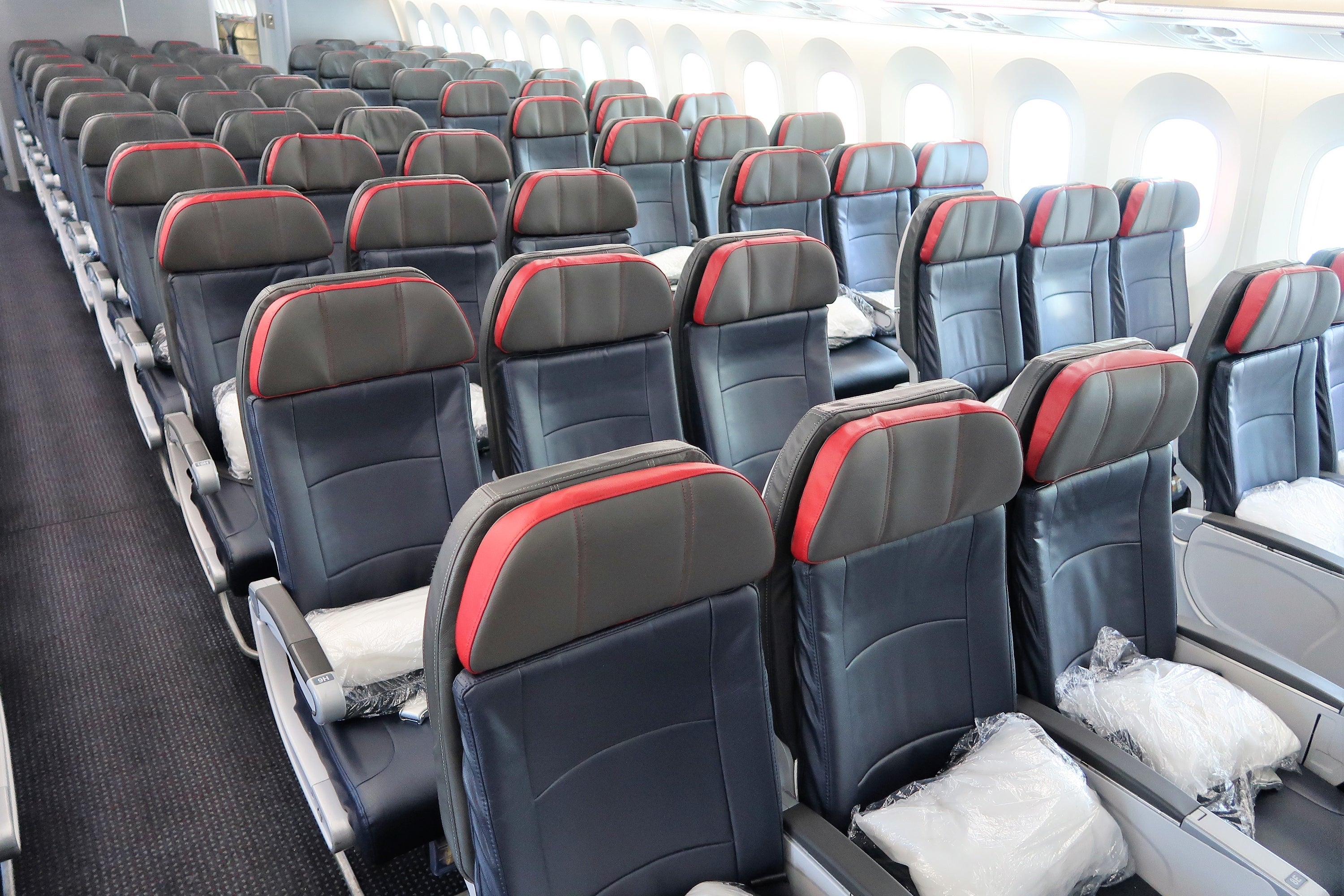Health officials criticize American Airlines for not blocking middle seats
Beginning Wednesday, American Airlines will sell its flights to full capacity as demand allows. In testimony on Capitol Hill Tuesday June 30, officials from the Centers for Disease Control and Prevention and National Institute of Health said they thought that was a bad plan.
"When they announced that the other day, obviously there was substantial disappointment with American Airlines," CDC director Robert Redfield told the Senate Health, Education, Labor and Pensions Committee, according to USA Today. "We don't think it's the right message."
Anthony Fauci, an infectious disease expert with the National Institute of Health also criticized the move.
Sign up for the free daily TPG newsletter for more aviation news.
Since the start of the coronavirus pandemic, aviation regulators have shied away from implementing national policies that would direct airlines' responses to the disease, so the companies have largely been left to themselves to devise and enforce onboard social distancing and public health measures.
Many carriers initially opted to block middle seats as a method of limiting capacity and proximity between passengers, along with modifying inflight service to reduce contact between travelers and crews. Those efforts have been uneven across the industry, however. United Airlines, for example, never capped capacity on any of its flights. Spirit and Allegiant, too, have been selling all seats when possible, though none of those airlines seem to have been mentioned during Tuesday's hearing.
Related: A complete guide to airline social distancing policies.
But, as demand for travel slowly rebounds, carriers have had to calculate whether to keep capacity caps in place, even as they're facing significant financial pressure.
Some, like Delta, Southwest, and JetBlue, have decided it's better to forgo some of the additional revenue and keep some seats open on every flight, but others have opted to sell more seats when possible.

Related: Airline complaints soared 1,500% in April as flyers vented about refunds.
"You can't employ distancing on an airplane like you can in a grocery store line," Nicholas Calio, president of Airlines for America, a trade group that represents major U.S. airlines, said on a call with reporters Tuesday. He added that even with blocked middle seats, there just isn't space on a plane to keep passengers completely separated throughout their journey like there would be in a large retail setting. Even so, he said, "I'd rather be on an airplane than in a grocery store."
Related: American tries to avoid the 'old airline playbook' on furloughs even as it shrinks.
Ross Feinstein, a spokesman for American Airlines, defended the company's move. He said there are other procedures in place to keep travelers safe, even if every seat on their flight is occupied.
"We are unwavering in our commitment to the safety and well-being of our customers and team members. We have multiple layers of protection in place for those who fly with us, including required face coverings, enhanced cleaning procedures, and a pre-flight COVID-19 symptom checklist — and we're providing additional flexibility for customers to change their travel plans, as well," Feinstein said. "We know our customers are placing their trust in us to make every aspect of their journey safe, and we are committed to doing just that."
Read more: How far can airborne COVID germs really spread on a plane?
Like American, most U.S. airlines now require their passengers to wear masks throughout every flight, and many carriers have stepped up enforcement of that rule, with some going as far as to ban noncompliant passengers from traveling with the airline again.
Ratings: Every American Airlines premium seat ranked from best to worst.
TPG featured card
at Capital One's secure site
Terms & restrictions apply. See rates & fees.
| 5X miles | Earn 5X miles on hotels, vacation rentals and rental cars booked through Capital One Travel |
| 2X miles | Earn unlimited 2X miles on every purchase, every day |
Pros
- Stellar welcome offer of 75,000 miles after spending $4,000 on purchases in the first three months from account opening. Plus, a $250 Capital One Travel credit to use in your first cardholder year upon account opening.
- You'll earn 2 miles per dollar on every purchase, which means you won't have to worry about memorizing bonus categories
- Rewards are versatile and can be redeemed for a statement credit or transferred to Capital One’s transfer partners
Cons
- Highest bonus-earning categories only on travel booked via Capital One Travel
- LIMITED-TIME OFFER: Enjoy $250 to use on Capital One Travel in your first cardholder year, plus earn 75,000 bonus miles once you spend $4,000 on purchases within the first 3 months from account opening - that’s equal to $1,000 in travel
- Earn unlimited 2X miles on every purchase, every day
- Earn 5X miles on hotels, vacation rentals and rental cars booked through Capital One Travel
- Miles won't expire for the life of the account and there's no limit to how many you can earn
- Receive up to a $120 credit for Global Entry or TSA PreCheck®
- Use your miles to get reimbursed for any travel purchase—or redeem by booking a trip through Capital One Travel
- Enjoy a $50 experience credit and other premium benefits with every hotel and vacation rental booked from the Lifestyle Collection
- Transfer your miles to your choice of 15+ travel loyalty programs
- Top rated mobile app


